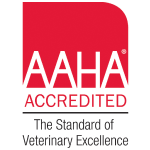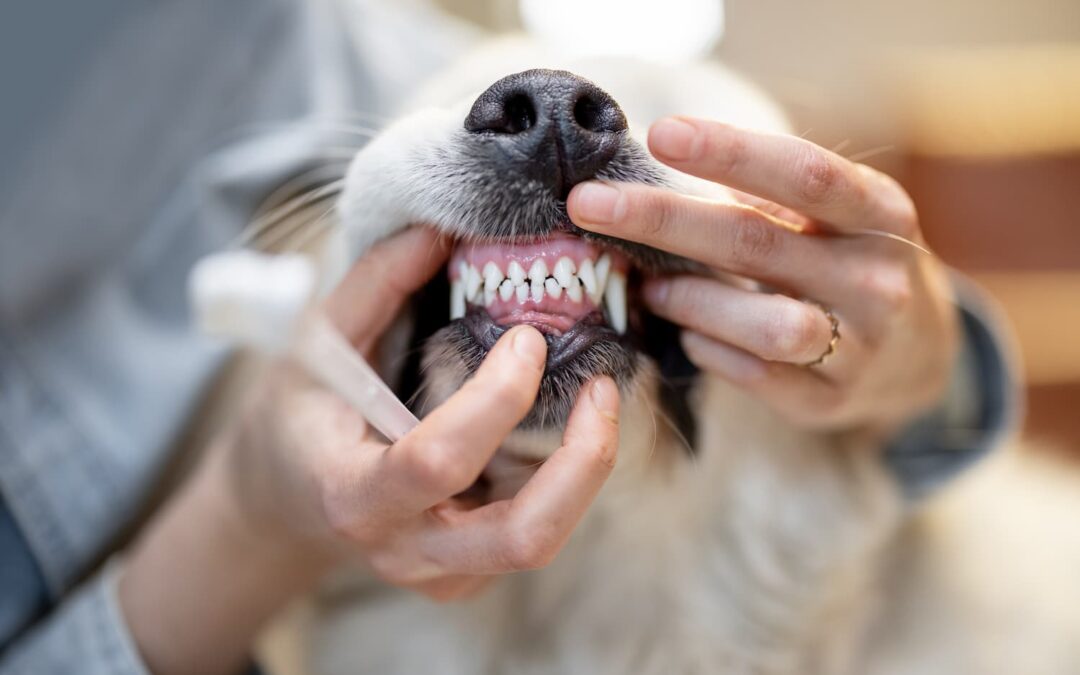Did you know your pet’s dental health is directly connected to their overall well-being?Untreated dental issues can severely impact a pet’s quality of life and lead to more serious health problems. From preventing bad breath to avoiding painful dental disease, keeping your pet’s teeth and gums healthy is essential to ensuring they live a long, happy life. Let’s explore why pet dental care matters and how you can keep your furry friend’s smile shining bright.
Why Pet Dental Health Is Important
Dental health is closely tied to overall physical health. Harmful bacteria in the mouth can lead to plaque, tartar, and gum disease, which can escalate to systemic infections like bacteremia. These bacteria may cause serious complications, such as heart disease, kidney damage, and liver inflammation.
Signs of Poor Dental Health
Watch for these signs to identify dental problems early:
- Persistent bad breath
- Difficulty eating or chewing
- Red, swollen, or bleeding gums
- Tartar build-up on teeth
- Drooling excessively and pawing at their mouth
If you notice any of these symptoms, it’s time to schedule a checkup. Early intervention can prevent further complications and improve your pet’s comfort and well-being.
Common Dental Problems in Pets
Dental disease is one of the most common health issues in pets, yet it’s often overlooked. Here are some common conditions to watch out for:
- Plaque and Tartar Build-Up
Plaque is a sticky film of bacteria that accumulates on the teeth after eating. If not removed, it hardens into tartar, which can only be addressed through professional dental cleaning. - Gingivitis
This is the inflammation of the gums caused by plaque and tartar build-up. Gingivitis can lead to pain, swelling, and bleeding gums if untreated. - Periodontal Disease
A more advanced form of gum disease, periodontal disease affects the structures supporting the teeth. It can cause severe pain, infection, and tooth loss. - Tooth Fractures
Pets that chew on hard objects, like bones or antlers, are at risk for cracked or broken teeth, which can expose the sensitive inner layers of the tooth. - Oral Infections or Tumors
Infections and growths in the mouth may signal more serious underlying conditions, which is why regular veterinary checkups are important.
How Untreated Dental Problems Impact Overall Health
Oral bacteria can enter the bloodstream, affecting the heart (endocarditis), kidneys (inflammation or failure), and liver (infections). These conditions, combined with chronic pain, reduce a pet’s quality of life and appetite.
By recognizing and addressing these dental issues early, you can prevent pain, systemic health problems, and improve your pet’s overall well-being.
How to Maintain Your Pet’s Dental Health
The good news is that many dental issues in pets are preventable. Here’s how you can keep your pet’s teeth and gums healthy:
1. Schedule Regular Veterinary Checkups
Professional dental cleanings remove plaque and tartar that at-home care can’t reach, preventing gum disease and tooth loss. Regular checkups also allow vets to detect hidden issues, like fractures or infections, ensuring thorough care under anesthesia for safety and comfort.
2. Brush Your Pet’s Teeth
Brushing your pet’s teeth at home is one of the best ways to prevent plaque build-up. Use a pet-safe toothbrush and toothpaste, as human toothpaste contains ingredients that can be harmful to animals. Start slowly, introducing your pet to the process gradually to help them feel comfortable.
3. Use Dental Treats and Chews
Dental treats and chews are a tasty way to reduce plaque and tartar. Look for products approved by the Veterinary Oral Health Council (VOHC) for maximum effectiveness.
4. Try Water Additives and Dental Rinses
Water additives and dental rinses can help freshen your pet’s breath and reduce bacteria in their mouth. These products are easy to use and can supplement other dental care routines.
5. Explore Professional-Grade Products
Check out the selection of vet-approved dental products available at South Hyland Pet Hospital’s online pharmacy. From special diets to dental wipes, there’s something to fit every pet’s needs.
By combining professional care with these at-home strategies, you can ensure your pet’s teeth and gums stay healthy and strong!
What to Expect During a Veterinary Dental Cleaning
If your pet needs a professional dental cleaning, you might be wondering what’s involved. Here’s an overview of what happens during the procedure:
- Comprehensive Oral Exam
The process begins with a thorough examination of your pet’s teeth, gums, and mouth to identify visible and hidden issues like gum disease, fractures, or oral masses. Once anesthetized, the vet can inspect hard-to-see areas for a complete assessment. - Anesthesia Administration
To ensure your pet stays comfortable and safe, dental cleanings are performed under anesthesia. This allows the vet to clean thoroughly without causing stress or discomfort. - Scaling and Polishing
Plaque and tartar are removed from your pet’s teeth using specialized tools. Once cleaned, the teeth are polished to reduce future plaque build-up. - X-Rays
Dental X-rays may be taken to check for hidden problems beneath the gum line, such as infections or root damage. - Treatment of Identified Issues
If issues like damaged teeth, infections, or advanced gum disease are found, they are addressed during the cleaning. Treatments may include tooth extractions, antibiotics, or follow-up care recommendations.
After the cleaning, your pet will go home with fresher breath, healthier gums, and a brighter smile!
The Benefits of Professional Cleanings
Regular dental cleanings:
- Prevent gum disease, tooth loss, and infections.
- Improve overall health by reducing risks of heart, kidney, and liver disease.
- Enhance your pet’s quality of life by alleviating pain and making eating more comfortable.
- Eliminate bad breath caused by plaque and tartar buildup.
Professional cleanings provide long-term health benefits, ensuring your pet enjoys a healthier, happier life.
When to Schedule a Visit
Not sure if your pet needs a dental visit? Watch for these signs to know when your pet may need immediate dental care:
- Persistent bad breath
- Visible tartar buildup or red, swollen gums
- Difficulty eating, drooling, or pawing at the mouth
- Loose or missing teeth
- Behavioral changes, such as irritability or lethargy
These signs often indicate dental disease, which requires professional attention to prevent worsening health issues.
Healthy Teeth, Happy Pets
Your pet’s dental health is more than just a cosmetic concern—it’s a vital part of their overall well-being. By prioritizing regular dental care, both at home and through our veterinarian, you can help your pet avoid discomfort and enjoy a healthier, happier life. Protect your pet’s smile today by scheduling a dental checkup at South Hyland Pet Hospital. Call us at (952) 884-1868 or visit our website to get started.
Image credit: Envato



